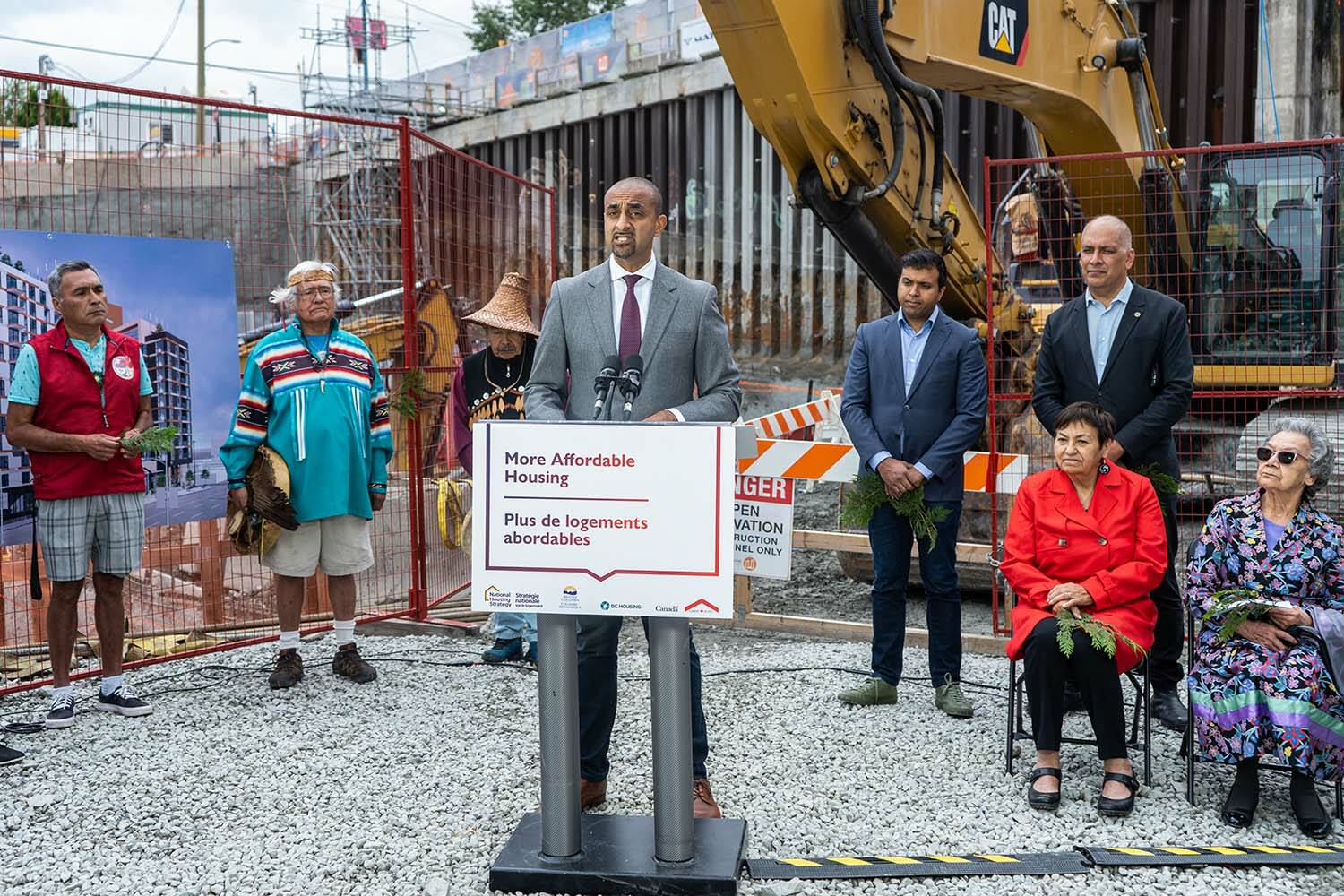Housing Minister Ravi Kahlon said he is “cautiously optimistic” that the federal government will step up its support for housing in B.C., but also repeated previous calls for greater federal involvement.
“I’m feeling cautiously optimistic after meeting with (Deputy Prime and Finance) Minister Chrystia Freeland three weeks ago with Premier Eby that she understands the challenges that we have ahead of us,” Kahlon said. “She understands the importance of infrastructure dollars, she understands that they need to be partners with us. So I left that conversation a little bit more optimistic than I have been than in the first eight months of meeting the minister of housing.”
Kahlon added that he has not yet met the new federal housing minister Sean Fraser, but hopes that he will see the challenges in B.C. for himself.
Kahlon made these comments after the federal government faced criticism for comments Prime Minister Justin Trudeau made about the role of Ottawa in housing.
Trudeau told media in early August, while announcing $64 million for rental housing in Ontario, that housing is not a “primary federal responsibility” in offering what some have called a narrow reading of Canada’s constitution. Trudeau drew criticism from across the political spectrum, with some critics perhaps deliberately ignoring his statement in its entirety, as Trudeau also said that Ottawa “can and must help with” housing.
Kahlon said he is willing to give Trudeau the “benefit of the doubt” while also noting that the federal government nonetheless “plays a big role” in housing.
All levels of government must do their part, but citizens ultimately prioritize solutions over conflicts and solutions are not possible without Ottawa’s participation, Kahlon said.
“We have said to the federal government, ‘we need you at the table and we need you at the table in a bigger way,’” he said.
Ottawa must get involved, not just because of the current housing crisis, because Ottawa also controls levers like immigration, Kahlon said.
Canada has set ambitious immigration targets to help fuel economic growth, but experts have questioned these goals, because of the country’s limited housing stock, especially in the fast-growing metropolitan regions already struggling with high housing costs. B.C. is considered especially unaffordable.
Kahlon has previously called on the federal government to tie immigration levels to new housing.
Kahlon said he would like to see Ottawa match B.C.’s investment in housing, pointing out to B.C.’s support for on-reserve housing.
“Right now, we are funding more on-reserve housing than the federal government and that is not a provincial jurisdiction,” he said, adding that B.C. is making that investment, because the status quo is not tolerable.
Kahlon also said Ottawa should consider removing the GST on purpose-built rental housing.
RELATED: B.C. unveils new ‘Homes for People’ plan with goal of 108K new houses, apartment units
Calls for federal help come against a backdrop of multiple provincial announcements promising to increase the housing supply. These promises face tough economic conditions, starting with a construction sector that has been shedding tens of thousands of jobs and applying for fewer building permits.
Kahlon points to the Bank of Canada “aggressively raising” interest rates, making a lot of projects are no longer viable.
“Every single project is going over budget, whether that is public projects, whether that is private projects,” he said. Developers are moving ahead with the most viable projects, while scaling back others, he added.
“Which is again, putting us further behind, where we want to be by 2030 for all the targets that CHMC has set for us.”
Government has constantly heard from the housing and development communities that dramatic reductions in permitting and approvals will improve the viability of projects, he added.So government will focus heavily in the fall on creating more certainty for all parties involved.
“The biggest thing is time — time is money,” he said. “(We) are also going to launch BC Builds, which is going to see the province directly get involved in building housing for middle-income families,” he said.
He added the program will include “significant” but unspecified financial resources to be announced later, as well as tools that will improve financing and sped-up approvals.
Broadly, BC Builds will see new housing construction on publicly-owned lands, including areas near transit hubs.
“So we have a pretty ambitious plan in front of us,” he said. “When I was at the (federal-provincial-territorial meeting of housing ministers in June), I was heartened to hear from all the other ministers that B.C. is leading the way, but that gives me not much comfort, when you know you are still so far behind here in British Columbia.”
RELATED: Province plans to release B.C. major market housing targets shortly
@wolfgangdepner
wolfgang.depner@blackpress.ca
Like us on Facebook and follow us on Twitter.

